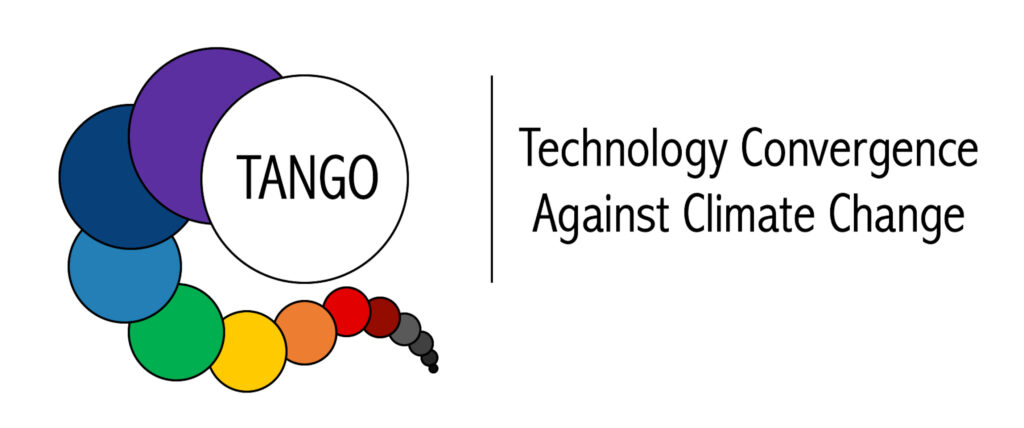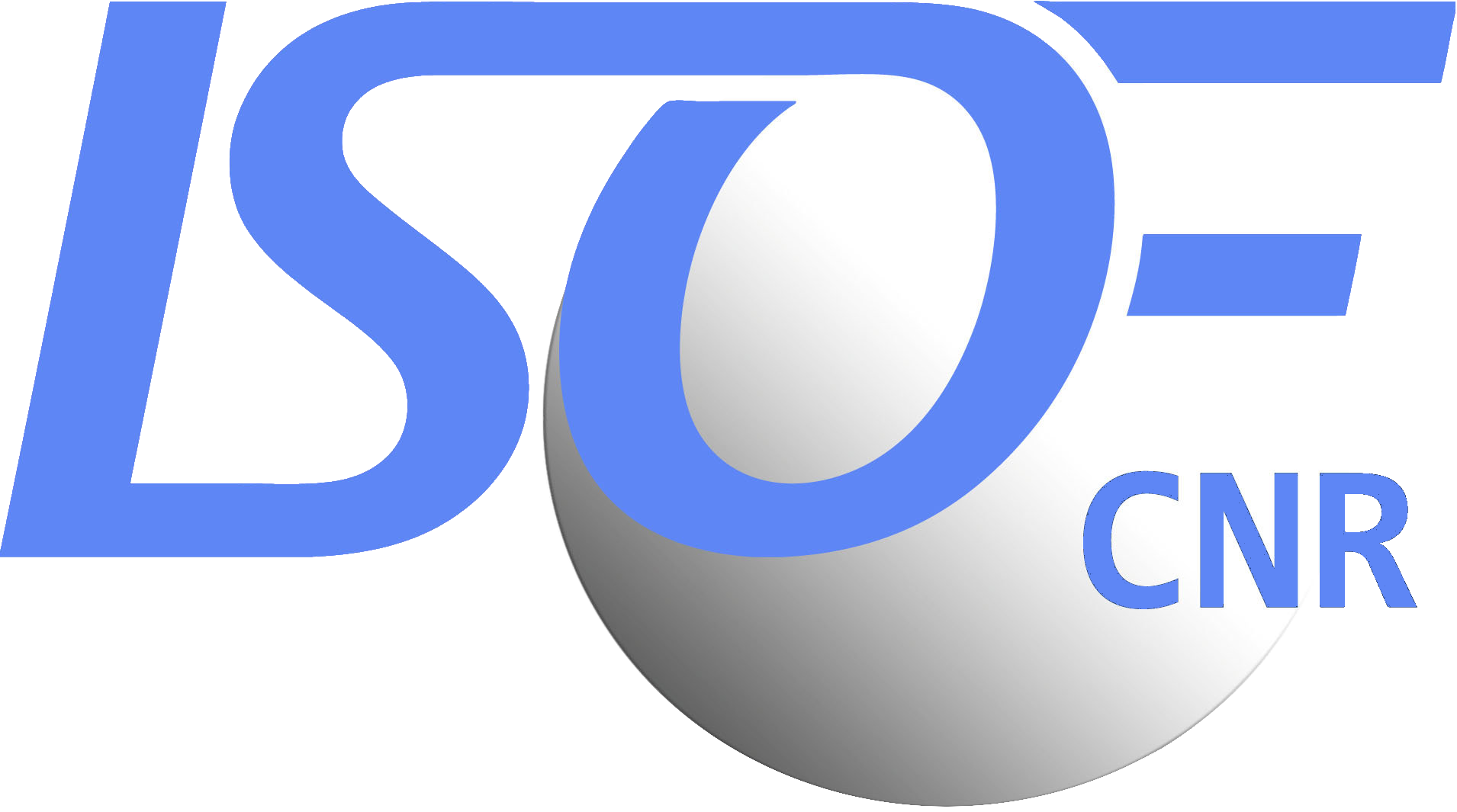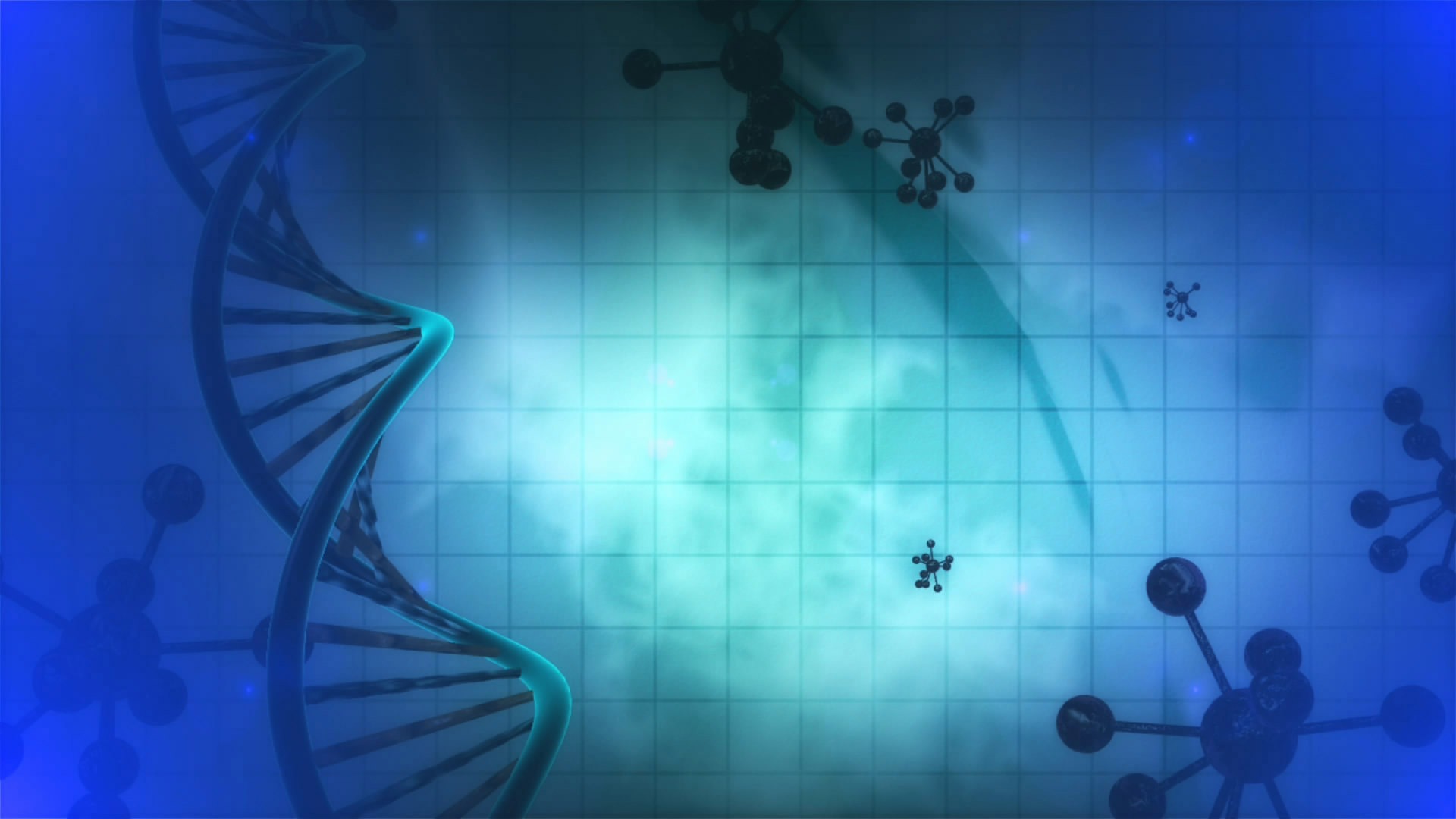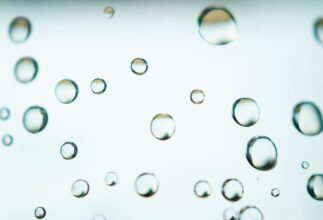“In the European Roadmap of process intensification (PI), PI is defined as a set of innovative principles applied in process and equipment design, which can bring significant benefits in terms of process and chain efficiency, lower capital and operating expenses, higher quality of products, less wastes and improved process safety” Dimian, Bildea and Kiss said in 2014.
Accordingly, in our continuous efforts toward the development of sustainable chemistry procedures and CO2 exploitation strategies, in collaboration with the University of Ferrara and KU Leuven, a team of researchers of the Institute of Organic Synthesis and Photoreactivity of the National Research Council (CNR-ISOF) in Bologna applied these concepts to the case of aerosol reactions for CO2-utilization, with the aim of introducing a novel methodological paradigm to the valorization of CO2 as renewable C1-building block to produce added-value chemicals.
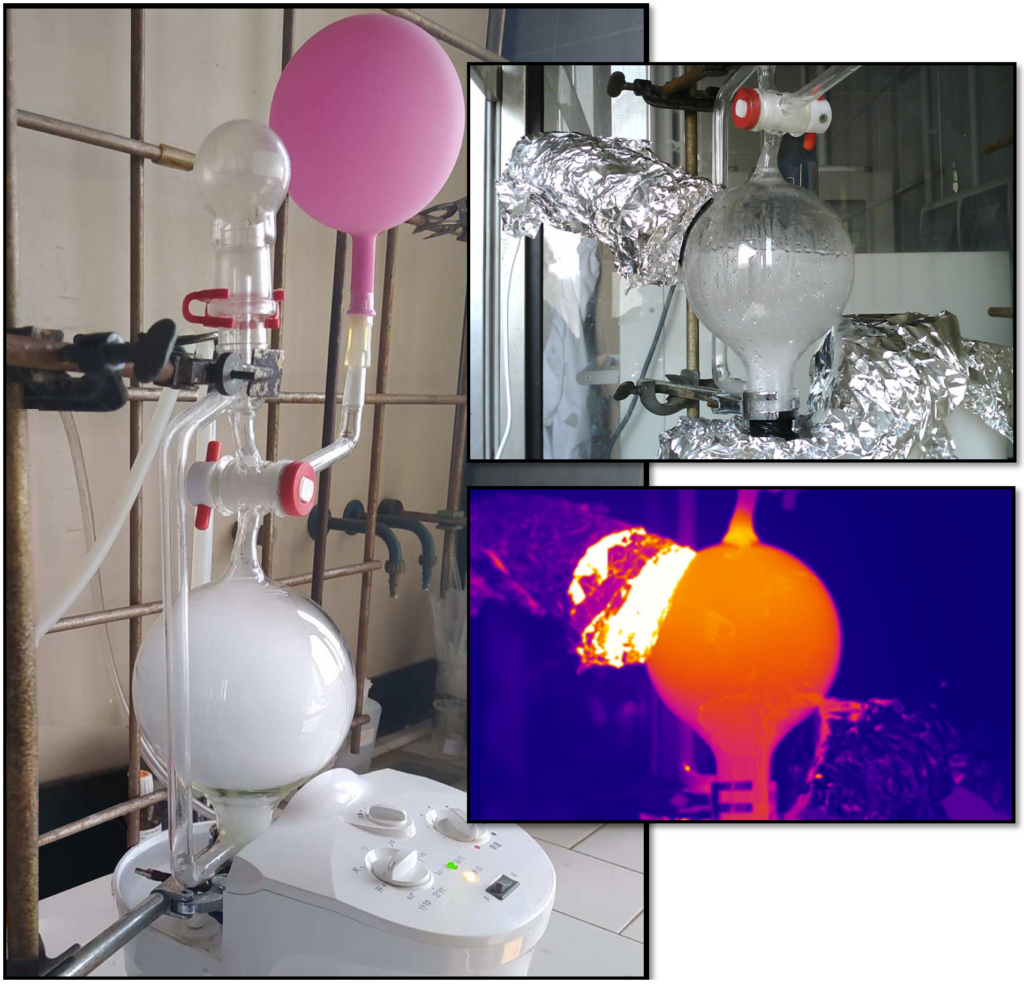
Exploiting a custom-made ultrasonic nebulization reactor, and considering as case study the styrene oxide to styrene carbonate conversion, performed in CO2 atmosphere and implemented in microdroplets (aerosol) mode, the model reaction was twofold accelerated at the preparative scale in very mild conditions.
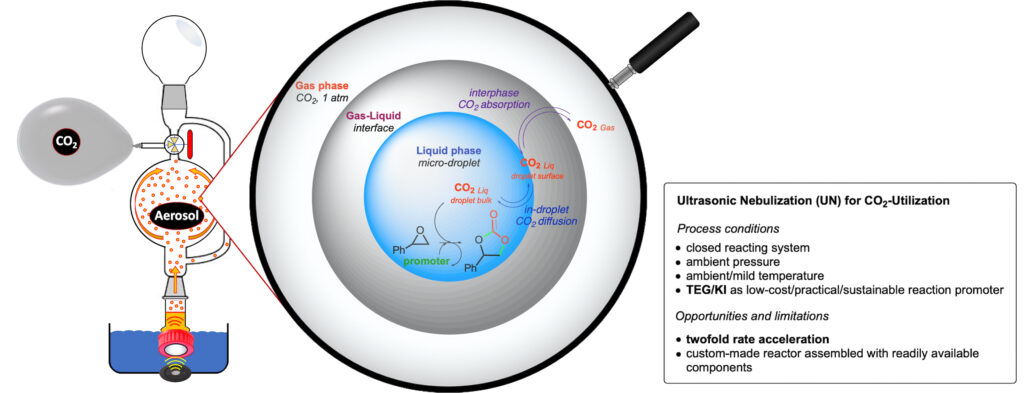
These significative efficiency improvements, candidate aerosol reactions as a preferred process intensification approach in the realm of effective CO2-utilization strategies and, in general, in the development and exploitation of gas-liquid two-phase reactions.
This is the first result of the project TANGO, supported by the NATO – Science for Peace and Security Programme, and has been published Open Access as short communication on Journal of CO2 Utilization.
Link to full article:
Journal of CO2 Utilization volume 67,
Article number: 102328 (2023)
Logos on the footer:
